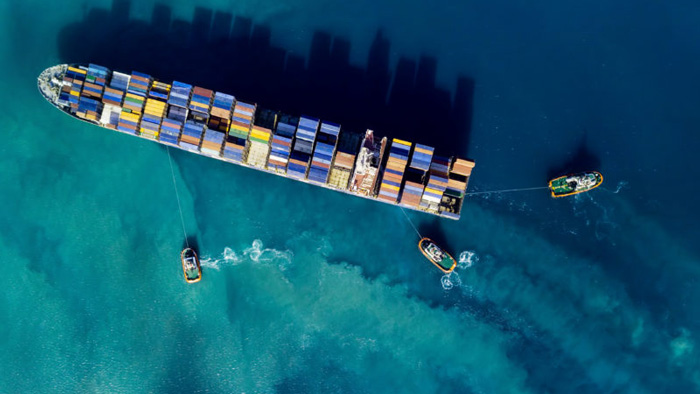
Global alliance to push international shipping to zero-emission vessels and fuels
A powerful alliance representing senior leaders within the maritime, energy, infrastructure and finance sectors, supported by decision-makers from government and IGO’s announced this week that they will lead the push for international shipping’s decarbonisation. The Getting to Zero Coalition, which is a partnership between non-profit bodies the Global Maritime Forum, the Friends of Ocean Action and the World Economic Forum, presented the initiative at the UN’s Climate Action Summit in New York early this week.
Ports including Europe’s leading terminals Rotterdam and Antwerp have also joined and the project has separately been endorsed by the governments of Belgium, France, Denmark, Palau, Chile, Morocco, South Korea, Ireland, Britain, Sweden, and New Zealand.
International shipping carries around 80% of global trade and accounts for 2-3% of global greenhouse gas emissions annually. Emissions are projected to grow by between 50% and 250% by 2050 if no action is taken.
The ambition of the Getting to Zero Coalition is closely aligned with the UN International Maritime Organization’s Initial GHG Strategy. The strategy prescribes that international shipping must reduce its total annual greenhouse gas emissions by at least 50% of 2008 levels by 2050, whilst pursuing efforts towards phasing them out as soon as possible in this century. This will
ultimately align greenhouse gas emissions from international shipping with the Paris Agreement.
The coalition is committed to making this ambitious target a reality by getting commercially viable deep-sea zero-emission vessels powered by zero-emission fuels into operation by 2030.
The Getting to Zero Coalition is a partnership between the Global Maritime Forum, the Friends of Ocean Action, and the World Economic Forum. The Coalition is supported by more than 70 public and private organizations.
“Energy efficiency has been an important tool which has helped us reduce CO₂ emissions per container with 41% over the last decade and position ourselves as a leader 10% ahead of the industry average. However, efficiency measures can only keep shipping emissions stable, not eliminate them. To take the next big step change towards decarbonisation of shipping, a shift
in propulsion technologies or a shift to clean fuels is required which implies close collaboration from all parties. The coalition launched today is a crucial vehicle to make this collaboration happen,” says Søren Skou, CEO of A.P. Møller Mærsk.
“Decarbonizing maritime shipping is a huge task with no simple answer, but it has to be done,” says Ben van Beurden, CEO of Royal Dutch Shell. “We intend to be part of the long-term, zero-carbon, solution by seeking out the most feasible technologies that can work at a global scale. Starting now is essential because ships built today will stay on the water for decades.”
Shipping can accelerate the broader energy transition and bring substantial development gains
The Getting to Zero Coalition may prove to be a catalyst for the broader energy transition if international shipping becomes a reliable source of demand for zero-emission fuels. This can increase confidence among suppliers and translate into an increased supply of feasible zero-emission fuels and thus be an important point of leverage for change across other hard-to-abate sectors.
“Climate change is a serious social and economic challenge that requires urgent action from both the public and private sectors,” says Michael Corbat, CEO of Citigroup, and Coalition member. “We are hopeful that the work of the Getting to Zero Coalition will inspire other hard-to-abate sectors to work together towards accelerating the decarbonisation of their industries as global trade flows – and consequently carbon emissions – continue to rise,” he says.
The demand for zero-emission fuels derived from renewable resources has the potential to drive substantial investment in clean energy projects in developing countries with a large untapped renewable energy potential.
“The Global Infrastructure Facility stands ready to support governments in emerging markets and developing economies, along with our partner multilateral development banks, with funding and technical expertise to plan, design, and mobilize private investment in the infrastructure solutions necessary to support decarbonisation of shipping and contribute to the goals of the
Getting to Zero Coalition,” says Jason Lu, head of the Global Infrastructure Facility (GIF).









